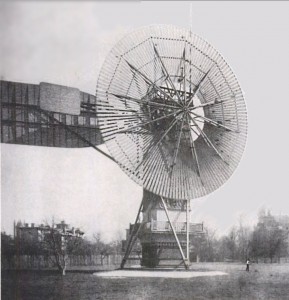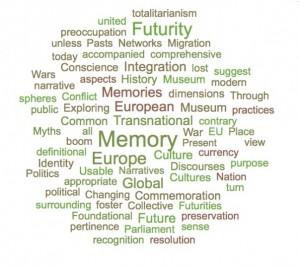CCGES > Category:Events
Posted: September 29, 2014
Symposium to launch the Graduate Diplomas in Comparative Literature and in World Literature
Please come to a Symposium organized by the Graduate Programs in English and in Humanities, to launch our new Graduate Diplomas in Comparative Literature and in World Literature. The symposium on “Trajectories in Comparative and World Literature” gathers four distinguished speakers from Georg-August-Universität Göttingen and York University, and will be followed by a reception.
Trajectories in Comparative and world Literature
Posted: September 23, 2014
We would like to invite all students interested in applying for a DAAD study or research scholarship to an information session on those funding opportunities. The session will be led by Christine Korte, York PhD student and a DAAD award recipient and John Paul Kleiner, Information Officer at DAAD German Academic Exchange Service in Toronto.
When? September 30, 2014, 2:00 pm
Where? 749 Kaneff Tower, Keele Campus
Please register by sending an e-mail to Zofia Hawranek hawranek@yorku.ca
More information
Posted: September 4, 2014
Andrea Bues from the Leibniz Institute for Regional Development and Structural Planning (IRS) will present her research focusing on one major gap in the literature on wind energy controversies: the role of power.
Many countries now promote the expansion of renewable energy facilities. However, especially proposals to install wind turbines are often met with forceful opposition. Her PhD project aims at investigating empirically by which mechanisms and strategies power relations manifest and potentially change in energy transitions. The focus is on local disputes on wind turbines and the research is designed as a comparative case study between cases of wind energy disputes in Ontario and the East-German federal state of Brandenburg. One aspect that will be studied study are the changes of the institutional design of renewable energy policy in Ontario and Brandenburg and how it affects power relations in decision-making processes over wind turbines. Another aspect will be the capability of anti-wind groups to influence decision-making. The major theoretical approach will be the emerging concept of depoliticisation which will be linked to concepts of power. The concept of depoliticisation offers an approach to analyse how and where specific topics are made subject of political decision-making.
countries now promote the expansion of renewable energy facilities. However, especially proposals to install wind turbines are often met with forceful opposition. Her PhD project aims at investigating empirically by which mechanisms and strategies power relations manifest and potentially change in energy transitions. The focus is on local disputes on wind turbines and the research is designed as a comparative case study between cases of wind energy disputes in Ontario and the East-German federal state of Brandenburg. One aspect that will be studied study are the changes of the institutional design of renewable energy policy in Ontario and Brandenburg and how it affects power relations in decision-making processes over wind turbines. Another aspect will be the capability of anti-wind groups to influence decision-making. The major theoretical approach will be the emerging concept of depoliticisation which will be linked to concepts of power. The concept of depoliticisation offers an approach to analyse how and where specific topics are made subject of political decision-making.
When? September 11, 2014, 3:00-4:30 pm
Where? Kaneff Tower 764, York University, Toronto
Posted: May 1, 2014
Andreas Huyssen’s observation of a “memory boom of unprecedented proportions” in the post-wall era has not lost its pertinence today; on the contrary, the 21st century continues to be marked by a preoccupation with discourses surrounding memory in the academic, political, cultural and public spheres. This is most certainly the case in Europe, where efforts to foster a greater sense of purpose for the project of European integration are often accompanied by a turn to memory and commemorative practices.
Alongside such institutional calls for a common European memory, academic memory studies have stressed the need to consider the transnational dimensions of cultural memory. As the nation loses its credence as the sole framework for collective memory and identity in this latest phase of globalization, mass migration and new media, scholars have drawn increasing attention to the ways in which memories operate multidirectionally (Rothberg) within as well as outside of and between nations.

This conference seeks to take stock of such transnational dimensions of European memory by investigating not only how memory discourses circulate on intra-European, but also on extra-European levels.
Usable Pasts and Futurities- Poster
When? May 22-23, 2014
Where? 956 Kaneff Tower, York University, 4700 Keele Street, Toronto
Posted: February 13, 2014
Maren Lorenz from the German Department of the University of Toronto is going to give a talk about French and German enlightened thinkers and their view on eugenics and a perfect society. Unlike the common notion of eugenics as a phenomenon of the late 19th and early 20th centuries, concepts of “human breeding” were developed in Western Europe since the middle of the 18th century. Based on case studies and tracts dealing with “medical police” and “medical hygiene”, scientific and economic experts discussed problems such as the hereditary transmission of disabilities and diseases, and the origins of so-called “degenerate” peoples in the scientific and enlightened journals. In the forefront of the French Revolution especially French and German physicians and bureaucrats developed concrete plans for a strictly state controlled marriage policy and “female stud farms” in the manner of livestock breeders to enhance not only the “quantity” but the “quality” of their countries’ population.
When? March 6, 2:30.
Where? Kaneff Tower 901.
For more information see Prof Lorenz’ homepage
Older Posts »



